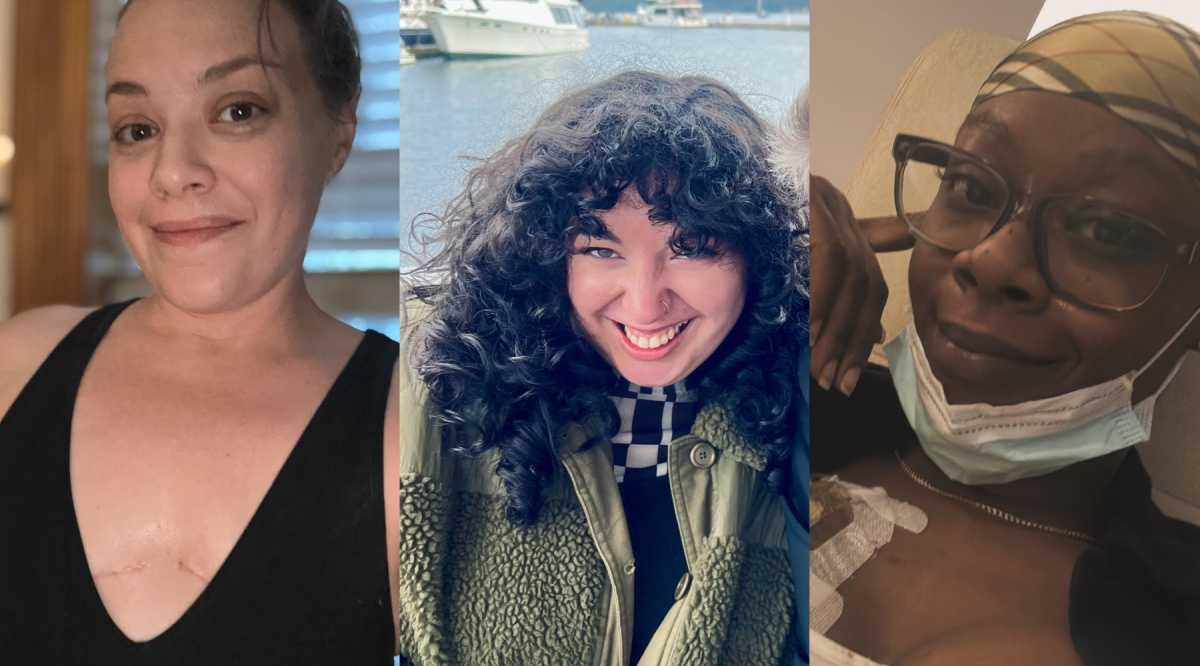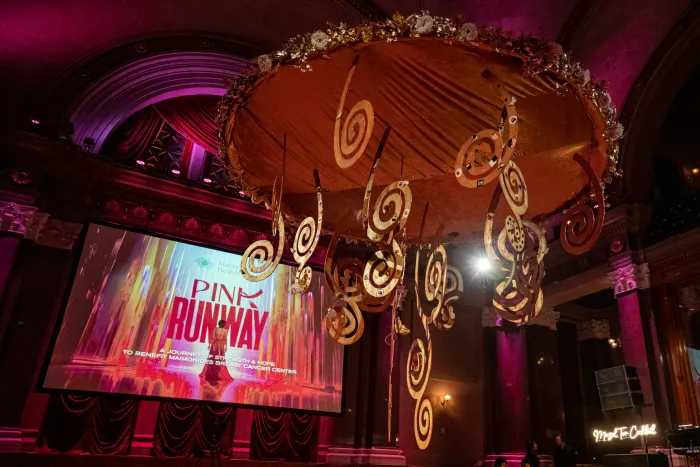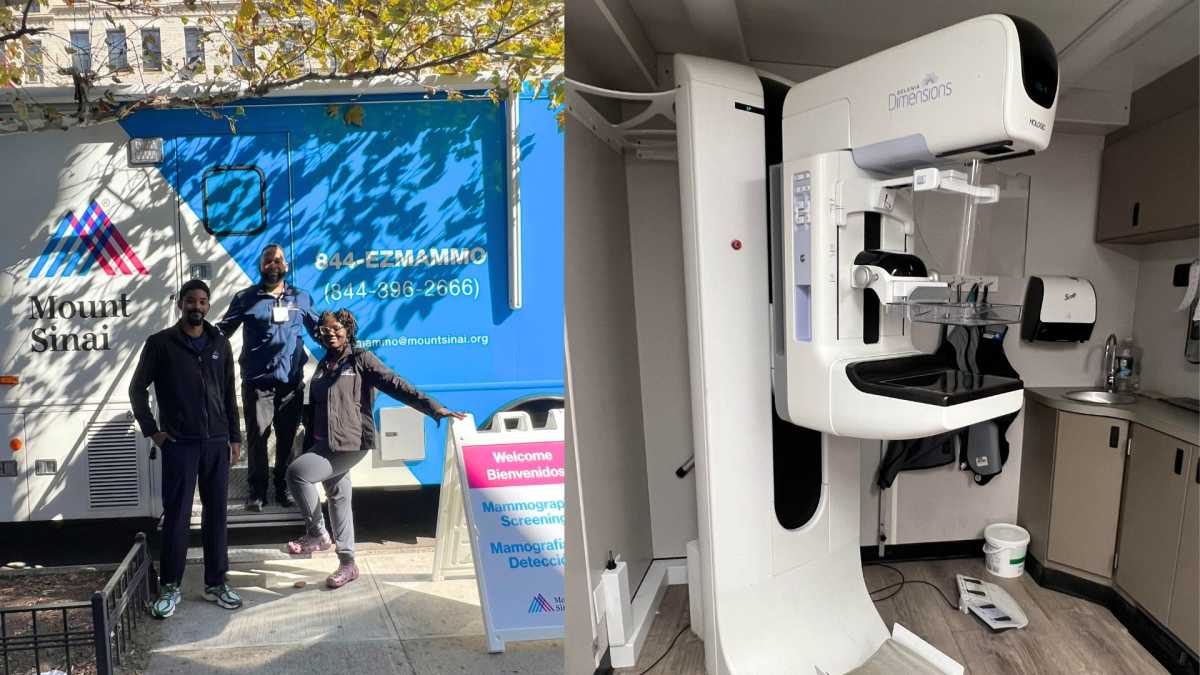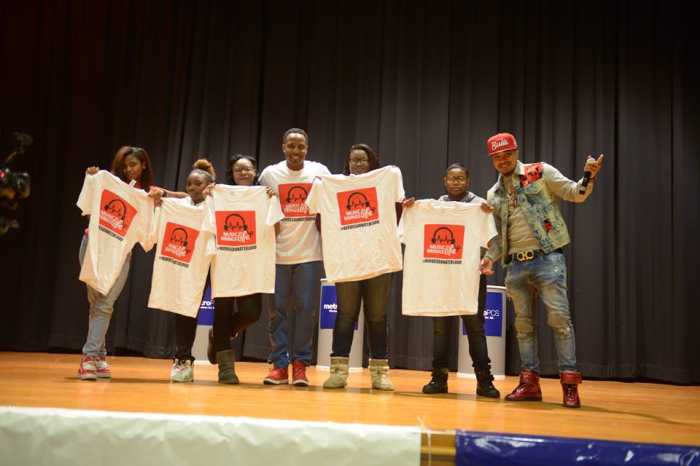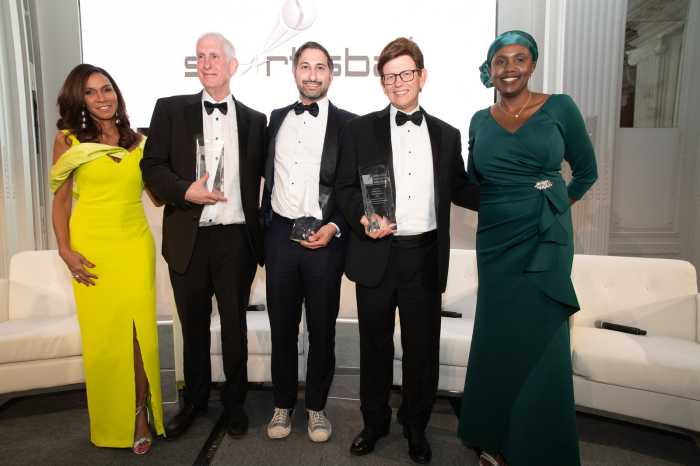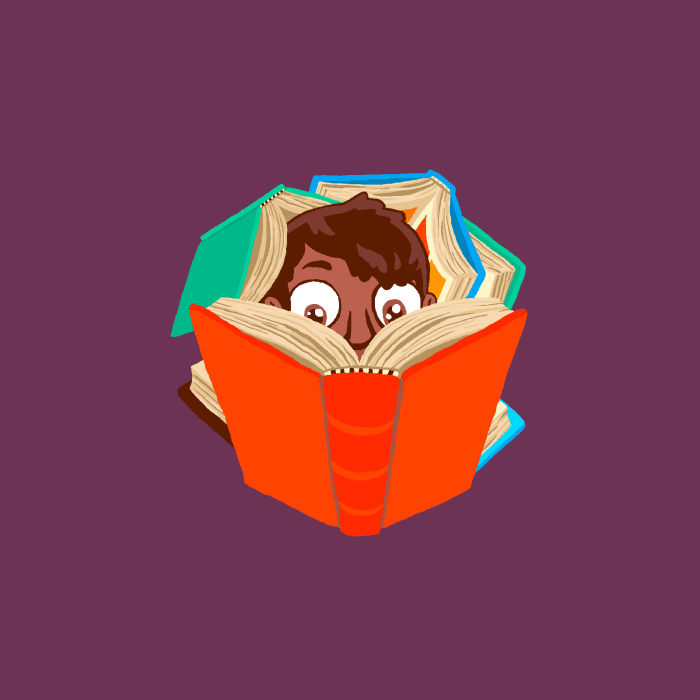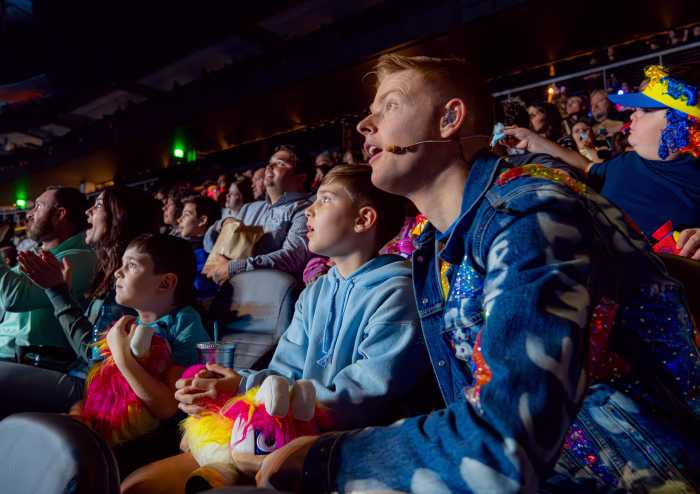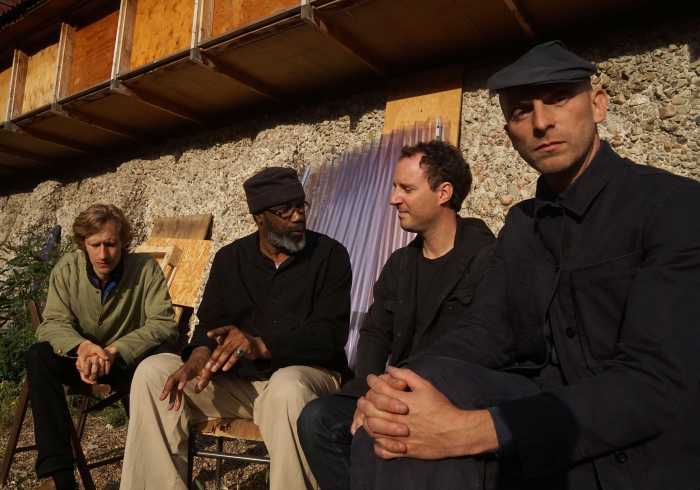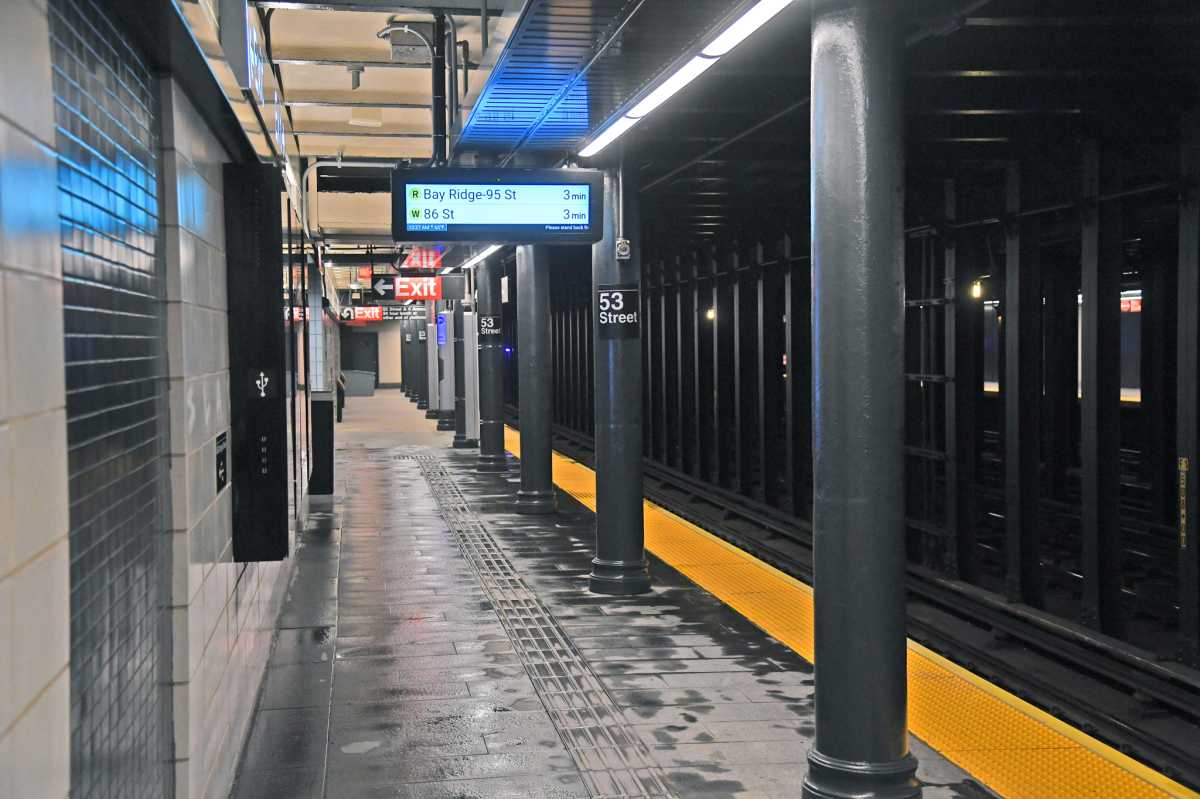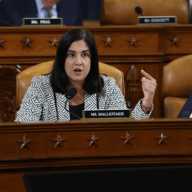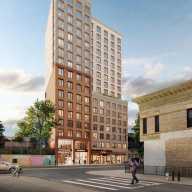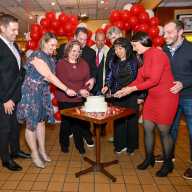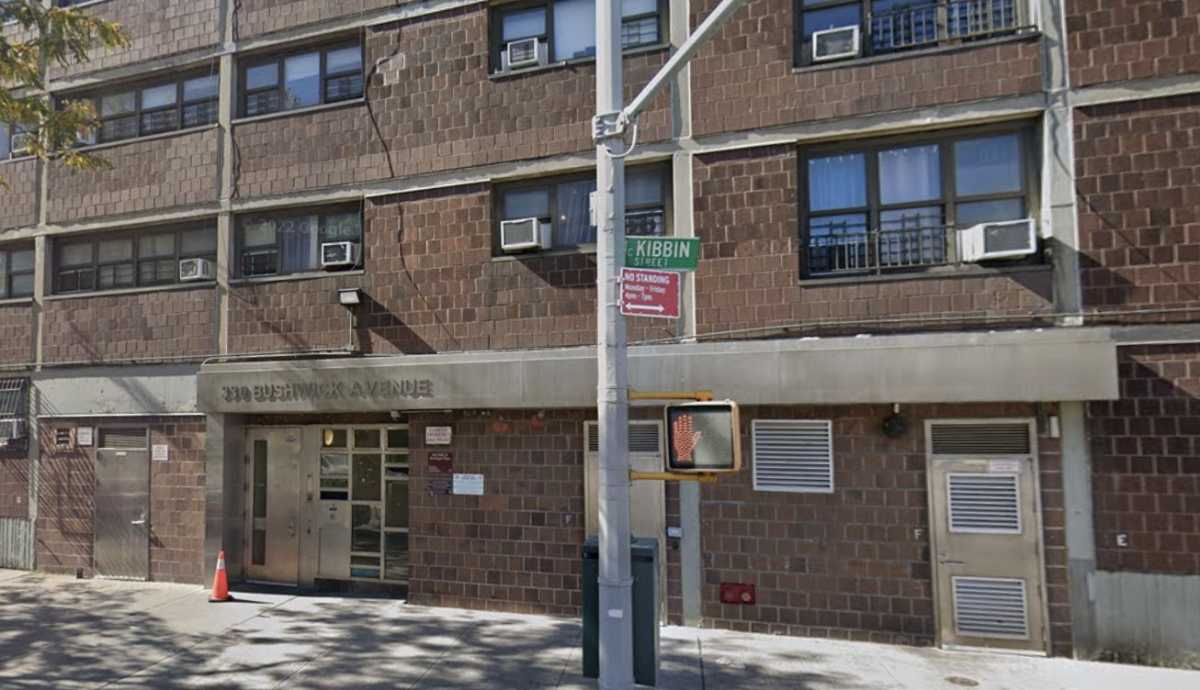Each October, Brooklyn marks Breast Cancer Awareness Month. Behind the awareness campaigns and charity walks, however, are real people — Brooklynites navigating fear, fatigue and the fight of their lives, often while holding down jobs and raising families.
Across neighborhoods, three voices shared what strength, vulnerability and community look like when breast cancer hits home.
“It’s been a fight for autonomy.”
Kristina Teschner, Prospect-Lefferts Gardens
When Kristina Teschner went in for their first mammogram at 44, they didn’t expect it to change everything.
“I caught this extremely early,” Teschner said, recalling how a casual Google search of their medical report confirmed their fears — stage zero DCIS breast cancer.
Even so, early detection didn’t blunt the emotional shock.
“It was terrifying,” Teschner said. “In terms of feeling that close to a sense of one’s mortality. I thought I had a hold on that, but then this happened.”
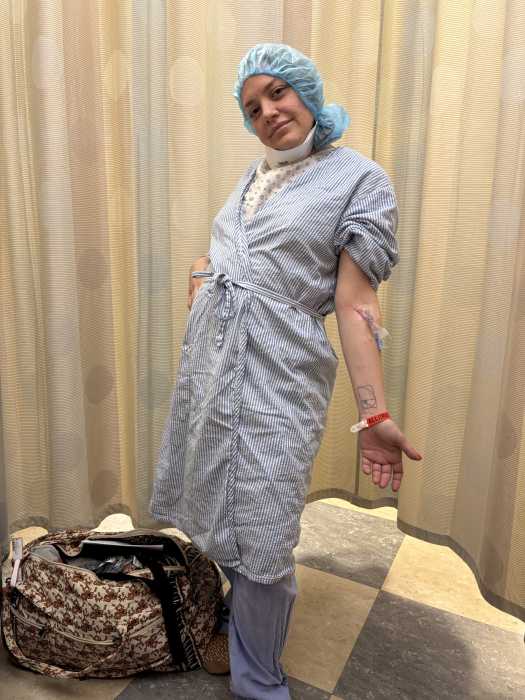
The diagnosis came at a moment when Teschner, who works in communication and advocacy but is now looking for work, was already navigating their gender identity.
“I’m non-binary, so my experience during the process of choosing surgery and even being in a breast cancer environment is inherently focused on women,” Teschner said.
In those early days, Teschner was thrust into a medical system that didn’t quite see them.
“The assumption was that I am a woman who connects femininity to my breasts,” they said. “That I would most likely want reconstruction and for it to be like nothing ever happened.”
The process moved fast — diagnosis in February, a surgeon’s visit days later, and consultations with a plastic surgeon the following week. Teschner initially agreed to a “deep flap” reconstruction, in which stomach tissue is used to rebuild the breast. But the more they researched, the more they questioned whether that was truly the ideal option.
“When it became so extremely real, that’s when I remembered who I am,” Teschner said.
After learning about the aesthetic flat closure, a procedure in which no reconstruction is done, they changed course.
“I basically wrote my team an email and was like, ‘Change of plans,’” they said. “And I explained to them what I needed.”
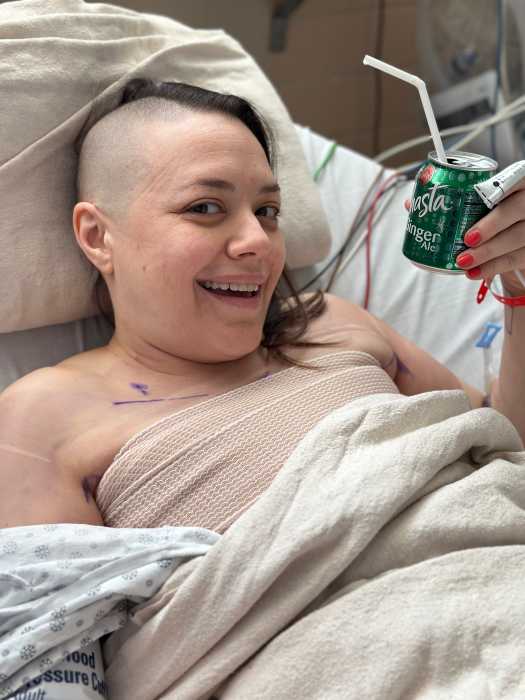
The surgery confirmed the best possible news: the cancer hadn’t spread. “It was my first and last mammogram, and now I am cancer-free,” Teschner said.
Today, they said they feel freer in their body than ever before.
“Once I was healed, I could walk without pain or discomfort and noticed I was walking with my shoulders back. I realized that there was all of this unconscious shame,” Teschner said. “There are so many bonuses to not having breasts — my clothes fit better, and my runs are great.”
Still, the reality of healing — physically, emotionally and financially — lingers.
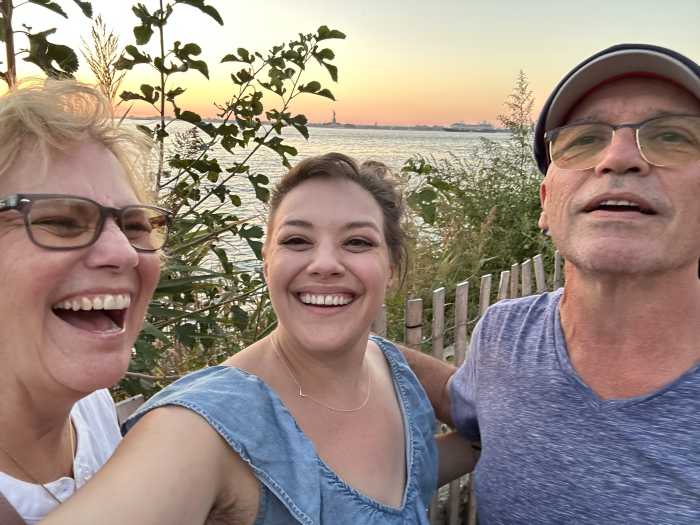
“People think, ‘You’re good now,’” Teschner said. “And I actually have $250 in my bank account. I still need help. Just because I can walk around and be happy, it doesn’t go away.”
Through it all, they hope their story expands how others understand recovery.
“It’s not just about surviving cancer,” Teschner said. “It’s about reclaiming who you are in the process.”
“It’s all about the fight.”
Sonaya Handberry, East New York
For Sonaya Handberry, the news came just weeks before a milestone birthday.
“I found out I had breast cancer June 30 of this year,” she said. “Almost a month before my 40th birthday, so I started my 40th chapter off not quite like I expected it to.”
A longtime Brooklyn resident, Handberry has spent two decades working in retail and the last four and a half years as a stock supervisor. She’s also a single mom to a 20-year-old son and the guardian of her 19-year-old niece.
When she learned her diagnosis was stage two metastatic breast cancer — meaning it had spread to one of her lymph nodes — Handberry said it felt like the ground shifted.
“I never saw it coming,” she said. “I’m the first one in my family to have it, and it’s not genetic. So right now it’s just about the fight.”
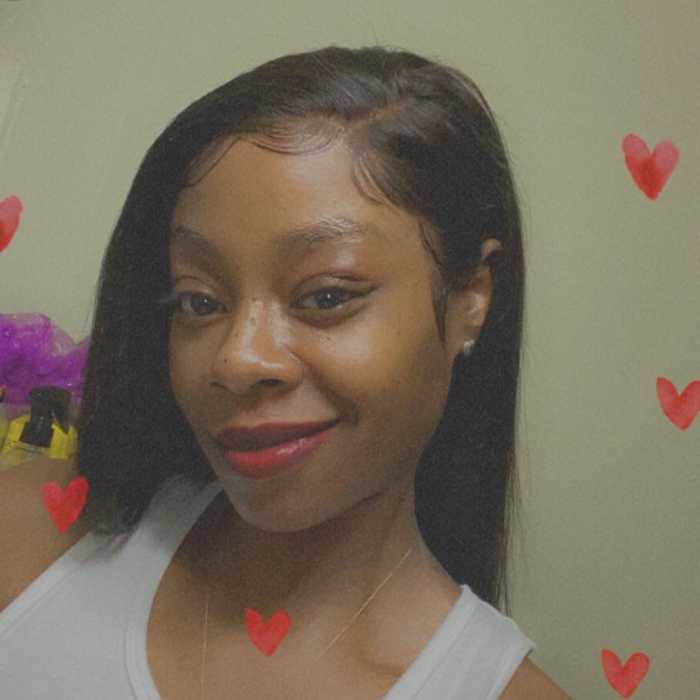
That fight has demanded everything from her.
“It does take a lot out of you quickly, especially once you start chemotherapy,” she said. “After my first round, it instantly took a lot out of me — my energy, the fatigue, the nausea, and I lost my hair quickly.”
Even in those difficult moments, she refuses to let despair win. She said her core circle of family keeps her grounded.
“I can’t really leave the house because of my vulnerable immune system, so I spend a lot of time with my family, or sometimes I’m alone and I call my best friend to keep a smile on my face if I’m starting to get in my head about something,” she said.
She has also found strength in therapy.
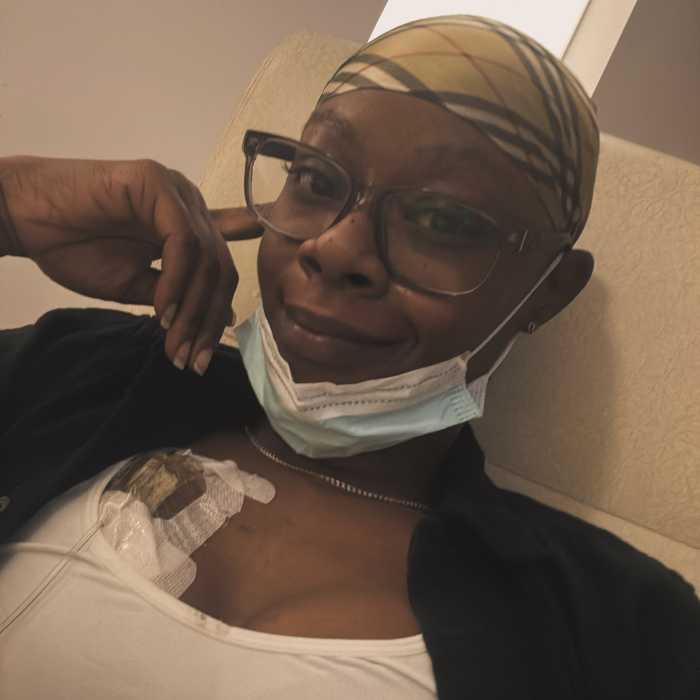
“It’s been a safe space for me to unload all my thoughts and emotions about the diagnosis,” she said. “You’ll have good weeks and bad weeks, where it feels like you’re always emotional. It’s good to have a therapist to help you navigate through the process.”
When asked what Breast Cancer Awareness Month means to her, Handberry didn’t hesitate.
“Personally, it’s all about the fight. Hopefully, next year I’ll be saying I’m cancer-free. But breast cancer awareness means the fight and strength of all the women going through this,” she said.
“I didn’t even realize I had a village until my village appeared around me.”
Chloe Effron, Prospect-Lefferts Gardens
Graphic designer Chloe Effron’s life has dramatically shifted over the course of a summer.
“We first noticed a lump at the end of July, and then in the first weeks of August I was diagnosed with breast cancer,” she told Brooklyn Paper. “At the end of August, we found out it was stage four.”
The 33-year-old’s journey has been a whirlwind of doctor visits, biopsies and chemotherapy, but she credits her community for keeping her grounded.
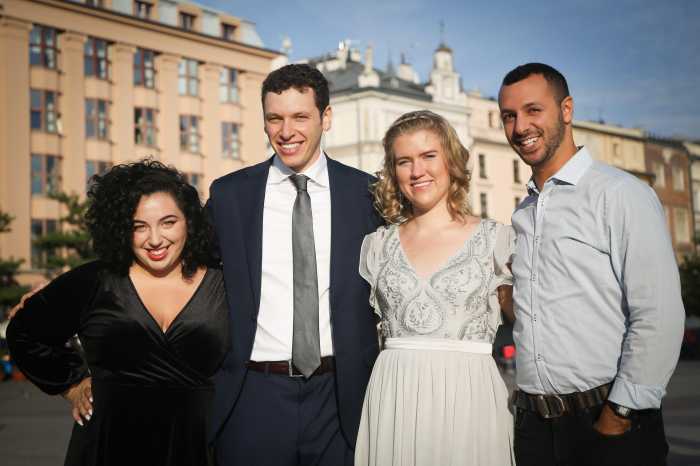
“I feel really fortunate for my family. My brother Max has been my ‘remote caretaker,’ managing my finances, insurance and scheduling,” Effron said. “Locally, I live with my partner, who has been there for me every step of the way. My dad also lives in Brooklyn, along with my older brother and his family. They’ve all been incredibly present.”
She said her sister-in-law set up a page on the website Giving Kind, where friends sign up to help with chemo, meals and “just being there.”
“It’s everything I could have asked for,” she said.
Max, who lives on the West Coast, described Effron as remarkably resilient.
“She’s been in the right attitude through the whole thing,” he told Brooklyn Paper. “Obviously, she’s scared and it’s overwhelming, but she’s taking it head-on. She’s doing the right thing each step of the way.”
He also noted how Chloe continues to live her life through treatment.
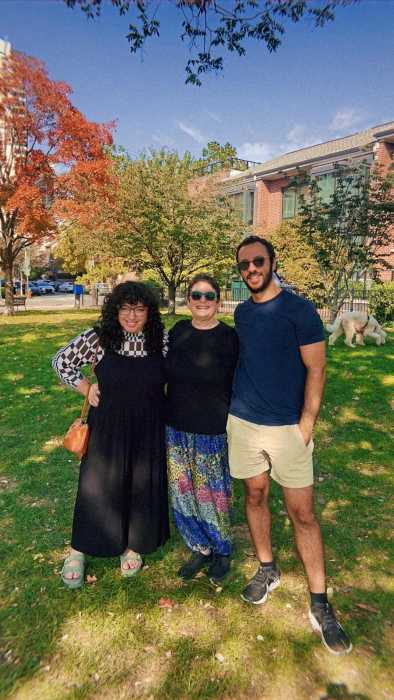
“Her birthday was a few weeks ago. She literally got out of the hospital after being there with a fever and went straight to her birthday party,” Max said.
Chloe emphasized the importance of accepting help, even when it feels difficult.
“It’s really hard to take and accept help, especially when you’re trying to be independent,” she said. “But it’s helpful to others too — it makes them feel like they’ve been doing something, not just sitting and watching it happen.”
She’s also been heartened by the response of her peers in Brooklyn.
“People have reached out to me saying they’ve scheduled mammograms who hadn’t thought to do it before, which is huge. I’m 33, and it seems like starting screenings earlier isn’t a bad idea,” she said.
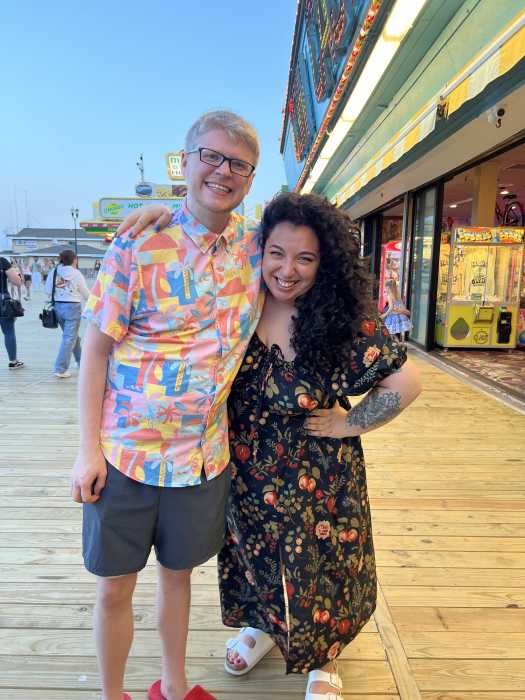
While the fight is far from over, Chloe’s focus remains on what she can control: leaning on her loved ones, staying present and navigating each treatment as it comes.
“So much is about trying to stay positive as far as that is,” she said. “It’s really scary, and it’s okay to be scared.”
Chloe’s community has become a lifeline through difficult times.
“I didn’t even realize I had a village until my village appeared around me,” she said. “Accepting help wherever it comes from is a way to know I can have some security, especially when I don’t know what my future looks like.”


